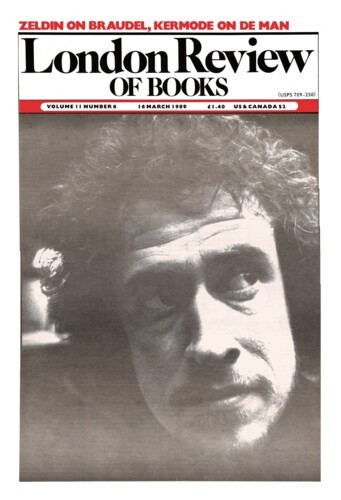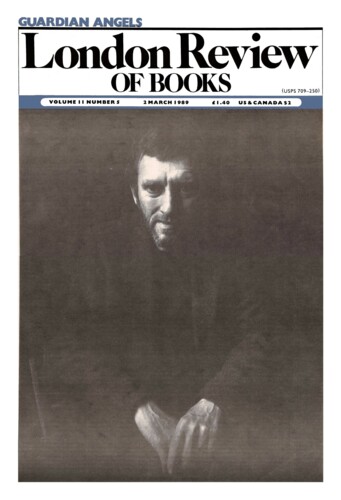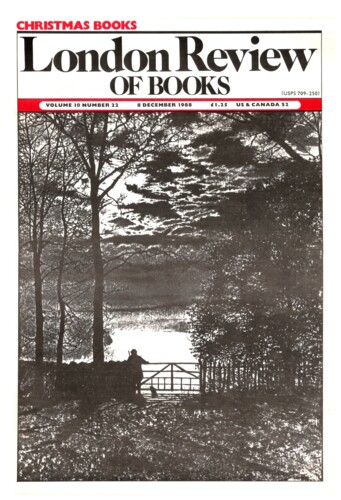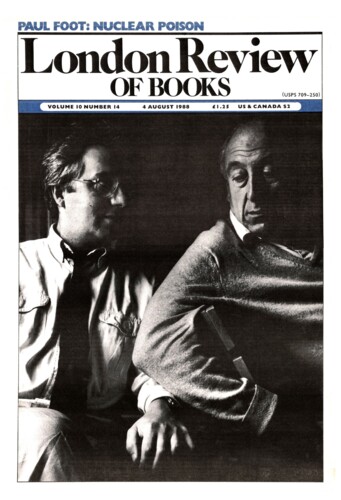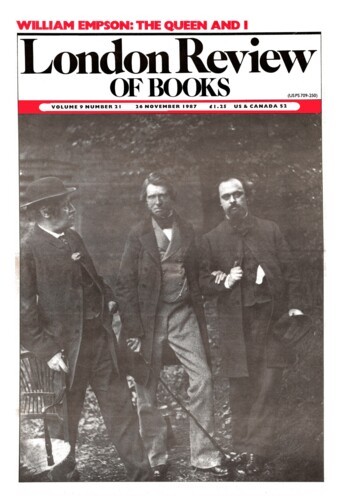Dark Strangers, Gorgeous Slums
Philip Horne, 16 March 1989
Travel is sometimes supposed to broaden the mind, impending death to concentrate it. Travel is more desirable than impending death, but it is usually harder to arbitrate between the claims of mental breadth and concentration. Reading Off the Rails by Lisa St Aubin de Teran, however, a memoir in which she brings us up to date with her 35-year ‘lifetime of truancy and escape’, a career of spontaneously marrying, travelling and writing, will make many readers feel that the loss of some sorts of breadth is not to be deeply regretted. The first third of the book, which takes us up to 1984, works best: because the author has already written about many of its strange experiences in her fiction; because it clips along with extreme rapidity; and because the exotic wanderings and encounters it records lie sufficiently in the past to allow due ironic distance. It has remarkable passages. The rest of the book is a different story – though it might be thought to tell the same story through rosier-tinted spectacles.’
